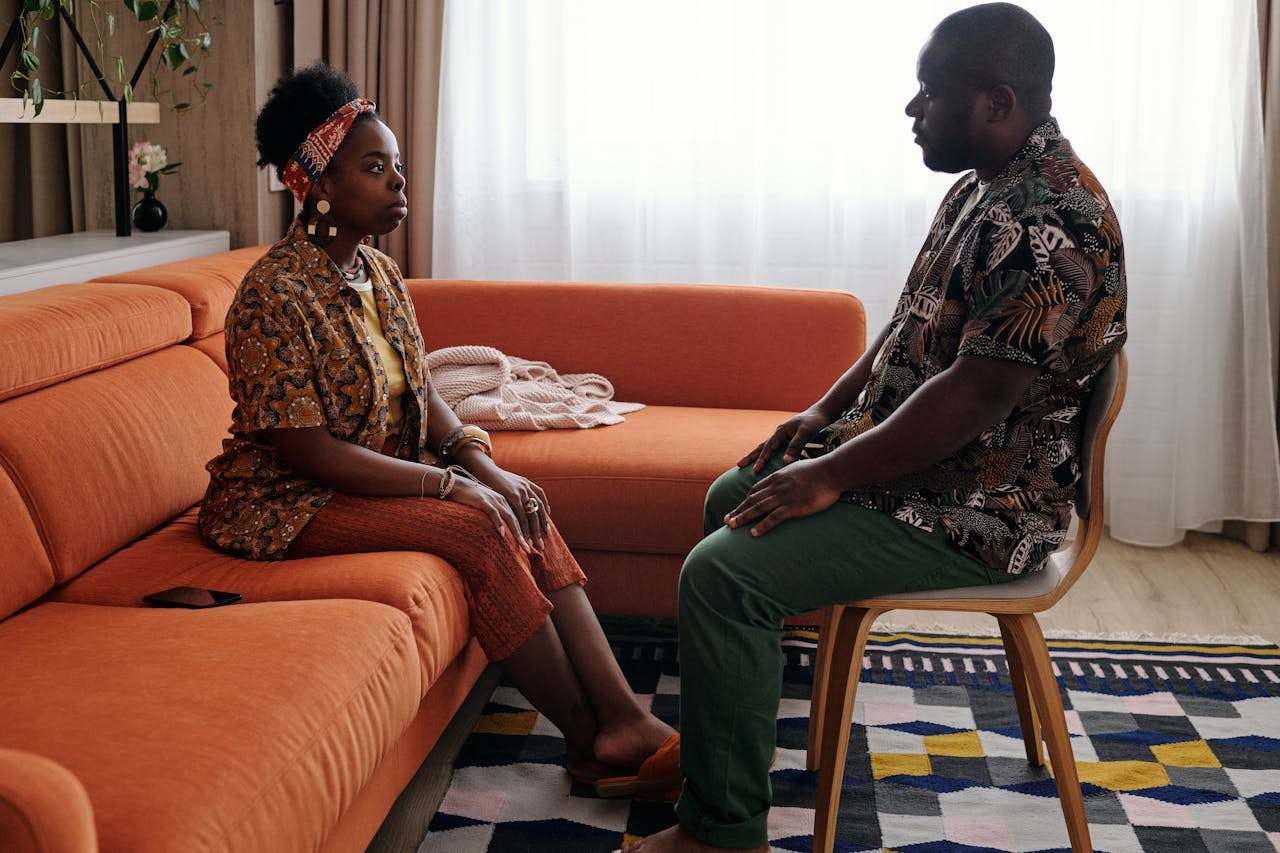
Open communication, focusing on the issue at hand, and a desire to comprehend one another’s viewpoints are all essential to effective conflict resolution in relationships. It’s critical to discuss problems in a composed manner, free from judgment or blame, and to collaborate to develop win-win solutions. Brainstorming can also help to resolve complex conflicts and strengthen the relationship.
Conflicts in a relationship are inevitable. They can arise from simple things like sharing house chores or more complicated things like budgeting for your income. However, how you deal with these conflicts is the measure of how healthy the relationship is. In times of conflict, you need to communicate well and in a way that strengthens your relationship by seeking to understand one another better.
There are ways in which you can handle conflicts without hurting your partner. For instance, you can argue things out without becoming personal. This article will equip you with the skills for relationship conflict resolution to maintain a healthy relationship.
Conflict Resolution Strategies for Couples
Here are effective ways of handling conflicts in a relationship.
Open Communication
Communication is the most crucial area to focus on when resolving conflicts in a relationship. You and your partner should be able to talk honestly about the relationship’s positive and negative aspects. Openly express your feelings, especially when they relate to something going wrong.
Clearly state the behavior you would like your spouse to change. Use “I” expressions to communicate your ideas and feelings to avoid sounding like you are accusing them. Also, avoid using harsh language, insults, or criticism.
Stay Calm and Focused
Control your emotions to prevent becoming defensive or angry and escalating the argument. Avoid going too far and disrespecting your spouse. Don’t let insults and personal jabs enter the argument. Keep the discussion focused on the pertinent topic.
Brainstorm for Solutions
Unmet needs can lead to arguments with your partner. If your partner is worrying over little matters, consider whether there may be a bigger problem at hand. Put yourself in your partner’s shoes to better understand their concerns. To reach a win-win solution, be prepared to compromise and find a middle ground. Prioritize the most critical problems and take care of them first. Then, progressively concentrate on addressing the remaining difficulties.
Find a Middle Ground
Compromising is one of the most essential conflict resolution strategies. It’s critical to balance both partners’ desires and comfort levels. If you both want to see the relationship thrive, you won’t feel like you are making a significant sacrifice by compromising.
Avoid Blaming Your Partner
Blaming your partner does not help, regardless of what they did, said, or did not do. It won’t help since the person assuming the responsibility will feel attacked, making them react to the blame rather than the actual issue. Replying with “I feel” declarations that focus on the current problem is preferable.
Keep an Open Mind
Another good strategy for resolving conflicts in relationships is to keep an open mind to increase the chances of an amicable resolution. It’s easy to become engrossed in an argument and lose sight of your partner’s concerns, limiting your flexibility.
Couples should instead put aside their egos and maintain objectivity, considering all sides of the issue without prejudice or self-interest. This allows for a rational conversation and the chance to comprehend and respect their partner’s point of view. Couples who can maintain objectivity and an open mind are more equipped to deal with life’s difficulties.
Cool Off
If you realize you or your spouse are too upset to discuss the issue, give yourself some “cooling off” time. Sometimes, taking a break and dealing with the problems is preferable when you’re both more composed. Certain topics are too sensitive to discuss in the heat of the moment. In such instances, the best thing to do is to put them on hold until calmer heads can prevail.
Be Ready to Apologize
Conciliatory actions have the dual benefits of encouraging forgiveness and calming people down. Refusing to apologize even when you are wrong shows you don’t value your relationship. Saying “I’m sorry” is not enough; you must be explicit about your apologies and demonstrate your sincerity. Apologize when necessary to avoid diminishing the value of an apology.
Causes of Conflicts in a Relationship
Let’s look at the most common causes of conflicts in relationships.
Poor Communication
Lack of effective and clear communication, confusion, and misinterpretations can result in disagreements in relationships. Some communication styles, such as passive or aggressive, can also cause conflicts.
Finances
Stress about money, arguments about spending patterns, or unequal financial contributions can cause arguments and strain a relationship.
Unmet Needs
Unhappiness and conflict can arise when basic emotional, physical, or interpersonal needs are unsatisfied.
Constant Criticism
Being in a relationship where your partner always finds fault with you is pretty annoying. A conflict becomes inevitable when your spouse thinks you’re to blame for everything, which indicates serious problems in the partnership.
Selfishness
Conflicts are bound to occur when you get consumed by your desires and forget how your choices affect your partner. Couples experience difficulty in their relationships when one partner makes decisions without considering the other.
Insecurity
Arguments, quarreling, and confrontations can arise when one partner feels insecure. Extreme insecurity can also result in accusations that impede meaningful communication.
Impact of Conflicts on Relationships
Conflicts drain partners emotionally. Here are some ways conflicts negatively affect relationships.
Stress
Relationship conflict is a major source of stress. Conflicts trigger emotions that can hurt the other’s feelings. In extreme cases, these conflicts cause obsessive disorder and unwarranted resentment toward one another.
Communication Breakdown
When conflicts arise, one of two things happens: either a partner withdraws and stops communicating, or they keep pushing forward in the conversation, which intensifies it even more. The outcome is a defense and attack cycle that undermines the emotional closeness and trust essential to a strong relationship.
Anger and Frustration
Feelings of anger often accompany conflicts in relationships. These feelings may present themselves as verbal outbursts or physical confrontations.
Conclusion
Although dealing with conflicts is a natural part of life and interpersonal relationships, it should not jeopardize them. When you can identify conflict and resolve it constructively, it often improves your relationship. The secret is to acquire and keep improving your conflict resolution capabilities.






